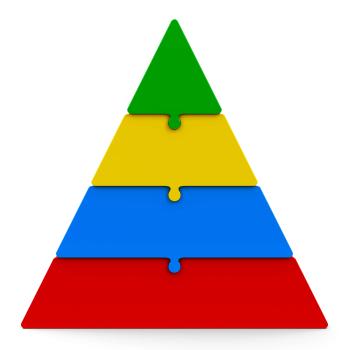Using the structure of a list poem, students combine creative expression with poetic techniques and language exploration in order to write group poems about what really matters in their lives.

Put That on the List: Collaboratively Writing a Catalog Poem

Grades
|
Choosing One Word: Summarizing Shel Silverstein's "Sick"
1 - 2
Lesson Plan
| Standard Lesson
Students select what they believe to be the most important word in a text that they have read and justify their choice using examples from the text.

Grades
|
Designing Museum Exhibits for The Grapes of Wrath: A Multigenre Project
9 - 12
Lesson Plan
| Unit
Using The Grapes of Wrath as a backdrop, students conduct research on issues that the novel addresses, publishing their findings in a multigenre museum exhibit.

Grades
|
Comparing Fiction and Nonfiction with "Little Red Riding Hood Text" Sets
K - 2
Lesson Plan
| Unit
Students discuss and compare differing versions of "Little Red Riding Hood" and other tales about wolves in cumulative read-aloud sessions and text set explorations.

Grades
|
Engaging Students in a Collaborative Exploration of the Gettysburg Address
3 - 5
Lesson Plan
| Standard Lesson
In small groups, students closely examine one sentence from the Gettysburg Address and create a multigenre project communicating what they have discovered about the meaning and significance of the text.

Grades
|
Myth and Truth: The Gettysburg Address
9 - 12
Lesson Plan
| Standard Lesson
By exploring myths and truths surrounding Abraham Lincoln's Gettysburg Address, students think critically about commonly believed stories regarding this famous speech from the Civil War era.

Grades
|
Using Student-Centered Comprehension Strategies with Elie Wiesel's Night
9 - 12
Lesson Plan
| Unit
Working in small groups, students read and discuss Elie Wiesel's memoir Night and then take turns assuming the "teacher" role, as the class works with four different comprehension strategies.

Grades
|
Investigating Names to Explore Personal History and Cultural Traditions
6 - 8
Lesson Plan
| Standard Lesson
Students investigate the meanings and origins of their names in order to establish their own personal histories and to explore the cultural significance of naming traditions.

Grades
|
Literature Circle Roles Reframed: Reading as a Film Crew
6 - 8
Lesson Plan
| Standard Lesson
Capture students' enthusiasm for film and transfer it to reading and literature by substituting film production roles for the traditional literature circle roles.

Grades
|
So What Do You Think? Writing a Review
9 - 12
Lesson Plan
| Standard Lesson
Writing a review of an author's work challenges students to develop their critical thinking skills. It provides an opportunity for students to speak their mindsand to enjoy being heard.

Grades
|
Dear Librarian: Writing a Persuasive Letter
3 - 5
Lesson Plan
| Standard Lesson
Students write persuasive letters to their librarian requesting that specific texts be added to the school library. As they work, students plan their arguments and outline their reasons and examples.

Grades
|
Audio Listening Practices: Exploring Personal Experiences with Audio Texts
9 - 12
Lesson Plan
| Standard Lesson
Students keep a daily diary that records how and when they listen to audio texts, then analyze the details and compare their results to published reports on American radio listeners.

Grades
|
Creating Family Timelines: Graphing Family Memories and Significant Events
3 - 5
Lesson Plan
| Standard Lesson
Students interview family members, and then create graphic family timelines based on important and memorable family events.

Grades
|
Graphing Plot and Character in a Novel
3 - 5
Lesson Plan
| Standard Lesson
In this graphical mapping project, students assign a value to the events, characters, and themes in a novel and think about how the elements of the story are all interconnected.

Grades
|
Characters in Because of Winn-Dixie: Making Lists of Ten
3 - 5
Lesson Plan
| Standard Lesson
The list of ten things about Opal's absent mother that her father shares in Because of Winn-Dixie serves as inspiration for students to create their own lists describing literary characters.

Grades
|
Our Classroom: Writing an Owner's Manual
3 - 5
Lesson Plan
| Standard Lesson
Students write an owner's manual that helps them get to know their classroom, provides them with a sense of ownership, and lets others know about their classroom.

Grades
|
On a Musical Note: Exploring Reading Strategies by Creating a Soundtrack
6 - 8
Lesson Plan
| Standard Lesson
Students create a soundtrack for a novel that they have read, as they engage in such traditional reading strategies as predicting, visualizing, and questioning.

Grades
|
Star-Crossed Lovers Online: Romeo and Juliet for a Digital Age
9 - 12
Lesson Plan
| Standard Lesson
Explore the modern significance of an older text, such as Shakespeare's Romeo and Juliet, by asking students to create their own modern interpretation of specific events from the drama.

Grades
|
Copyright Infringement or Not? The Debate over Downloading Music
9 - 12
Lesson Plan
| Unit
This lesson takes advantage of students' interest in music and audio sharing. Students investigate multiple perspectives in the music downloading debate and develop a persuasive argument for a classroom debate.

Grades
|
You Know the Movie is Coming—Now What?
6 - 8
Lesson Plan
| Standard Lesson
In this lesson, students read a literary text with the eye of a director, selecting scenes from the text and putting a cinematic spin on them.